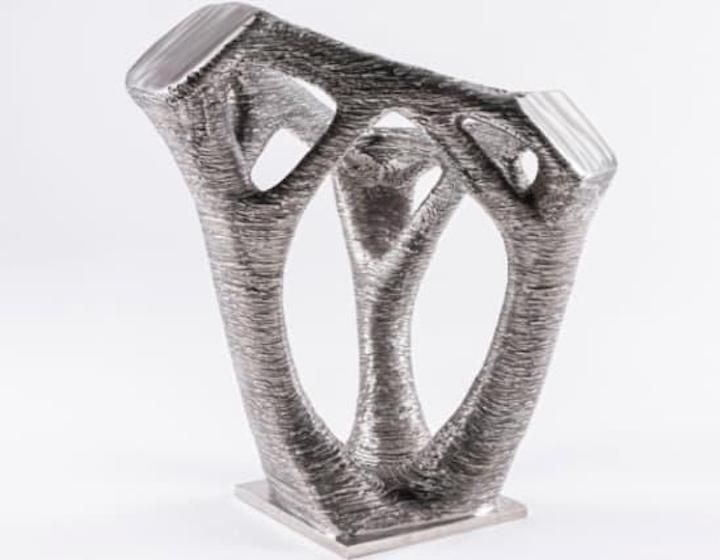
A collaboration between MX3D and Takenaka has resulted in a 3D-printed steel connector for use in structural construction.
MX3D, an emerging leader in bringing wire arc additive manufacturing (WAAM) technology to the architecture, engineering and construction (AEC) industry—including the first 3D-printed bridge —has partnered with Takenaka, a Japan-based AEC firm, in the hopes of taking that innovation to new levels.
The two joined forces in 2019 to develop a 3D-printed steel connector for structural use, which has recently passed destructive and non-destructive testing and is on its way to certification.
The collaboration was born out of a desire to automate the production and design of large structures. Doing so is one solution to tackle the growing complexity of structures and the decline of skilled labor available.
It provides the opportunity for production to go fully digital, which decreases both the time and costs associated with design and production. This also offers logistic benefits and can easily be integrated with BIM.
“Ever since we’ve realized the first 3D-printed metal bridge, our robotic WAAM technology has received a lot of attention from construction companies,” said Filippo Gilardi, MX3D R&D Engineering lead. “The collaboration with Takenaka Corporation on this project and its impressive test results represent yet another leap forward in the adoption of 3D-printed components in the AEC industry.”
The connectors are made with duplex steel. Although that type is minimally used across the globe, it offers many benefits for construction. It is known for its strength—up to twice as much as other steel grades—and is tough and ductile.
It is also highly corrosion-resistant, making it an ideal metal for structural components, and costs less since it requires lower levels of molybdenum and nickel.
Through the use of generative design and advanced printing techniques, the connector’s geometry allows a building to benefit from both steel and concrete. The semi-hollow connectors are printed with MX3D’s proprietary technology MetalXL —a software package used with an industrial robot and welding machine to 3D print metal.
MX3D stated, “Instead of placing just a few welds, large-scale 3D objects are printed by continuously stacking welds on top of each other. MX3D prints in almost any metal that is available as a welding wire and our objects range from football-sized up to car-sized items.”
Read more at ENGINEERING.com
